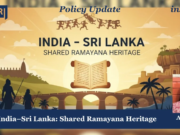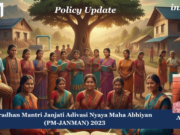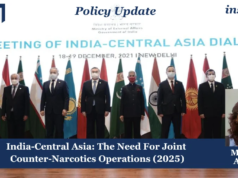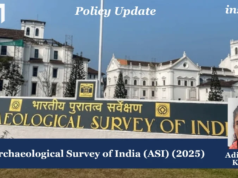Policy Update
Ishika Dalal
In India the term ‘reservation’ denotes a system of social justice wherein the Scheduled castes (SC), the Scheduled tribes (ST) & the other backward classes (OBC) are given a certain proportion of their seats reserved in the educational institutions, jobs and government services. This system aims to help minimize social and educational disparities and ensure that these groups have access to equal opportunities.
Reservation policies have always been a critical problem in the Indian education system in the cases of government school (69%) and government colleges (21.5%); these issues are provided to bring social and educational justice for deprived groups. As much as these policies have been noble, most of them have received criticism on whether they have been effective, or have been a sore on the surface of equality.
Nonetheless this debate is not specific to India only. The U. S. Supreme Court on June 23, 2023, declared race-based affirmative actions in college admission as unconstitutional. This decision may be compared to India’s reservation system where both primarily need to redress past wrongs concerning access to education and increase diversity. However, the contexts and specifics of these policies are quite different. While the policy of affirmative action in the United States has been mainly based on race, India has its reservations for caste and economic class.
One major critique of the current reservation system is that it is based on broad categories like caste, religion, and economic status instead of individual need and merit which ultimately leads to inefficiencies in seat allocation. The expansion of reserved categories has reduced the policy’s effectiveness. Scholars suggest replacing the current system with need-based and merit-based financial assistance for economically disadvantaged students, regardless of their social identities. Reservation should be one of many tools, alongside scholarships, need-based funds, and welfare schemes, for uplifting marginalized communities.
Initially, the concept of reservations was confined to the SC and ST categories; however, the OBC category was added in the year 1990. During the EWS quota verdict on 2022, Justice of the Supreme Court S Ravindra Bhat reiterating Baba Saheb Ambedkar’s words that reservations should be seen as temporary or else they would devour the rule of equality which is correct.
This approach would mean that the college seats under the government reservation will be given only on merit and not on the caste or religious background of the students. At the same time, the government of course would provide a combination of avenues as pointed above to support the low-income students to as well attain higher education.
Thus, adopting this model, the Indian government could build a more fair and efficient system of schooling without paying attention to useless social differences, but focusing on achieving merit and the financial situation of people. Despite the fact that the introduction of such a system is unlikely to be devoid of political and social controversies, the positive impact could be observed in the field of achieving higher learning outcomes and, consequently, better social conditions for the disadvantaged population.
Thus, it can be said that the policies for reservations in education specifically in India for the SCs and STs are highly debatable with making points strong on both the sides of the argument. Although most libertarians would want to leave the matter of education in the hands of private markets and opposing state regulation, the current state of affairs demonstrates that the situation requires a more complex approach.
Instead of supporting the Free market model or a model fully supported by the government, there could be a compromise between the two models. However, for the students who face financial problems due to their low economic status, the government can provide them with scholarships, need base additional funds and employment opportunities in the campus regardless of their cast or religion. Such a plan would tackle the roots of educational disadvantage without the state overemphasizing its control over schools and educational systems.
The time has come to make the changes wisely, thus bringing qualitative changes to the system, making it merit-based and, at the same time, catering to the deserving beneficiaries rather than continuing with the concept of perpetuity of the reservation policy.
References
- Sapra, C.L., 1990. Equity and Diversity: Challenges for Educational Administrators in India. Journal
of Educational Administration. - Bhojani, U., Madegowda, C., Prashanth, N.S., Hebbar, P., Mirzoev, T., Karlsen, S., & Mir, G.,
- Affirmative action, minorities, and public services in India: Charting a future research and
practice agenda. Indian Journal of Medical Ethics/Indian Journal of Medical Ethics (Online). - Chauhan, C.P.S., 2008. Education and caste in India. Asia Pacific Journal of Education.
- Dhameja, N., & Gupta, R., 2010. Higher Education in India: Its Growth and Private
Participation: Issues. Indian Journal of Public Administration/Indian Journal of Public
Administration. - A Million Children Now! A.R. Nayak, Shweta Arora, Himanshu Joshi -Innovations, 2010
About the contributor: Ishika Dalal is a recent economics graduate, currently working as an analyst at the University of Cape Town. Her work focuses on expanding energy access in developing countries. With a diverse background as a research assistant and intern across various universities and think tanks, she has explored a wide range of fields including education, climate change, sustainability, international trade, policy, and development economics.
Read more at IMPRI:



















